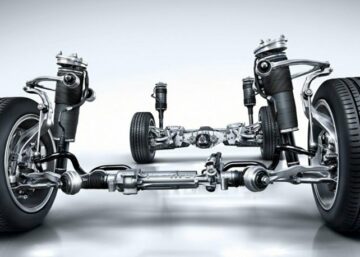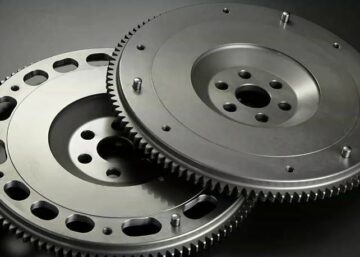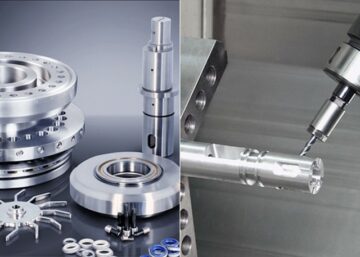CNC fabrication has never been more accessible than now because of the growing number of machining facilities that offer custom CNC parts fabrication. This gives small-scale hobbyists and bespoke parts enthusiasts a chance to fabricate their custom parts even in low volumes.
With the wide variety of fabrication methods existing today, CNC machining is still the leading player in the production of highly intricate and complex parts we see in huge industries such as automotive, aerospace, heavy equipment, and many more. The reason behind this is that the quality of custom CNC parts remain unparalleled when it comes to precision, performance, and reliable structural integrity.
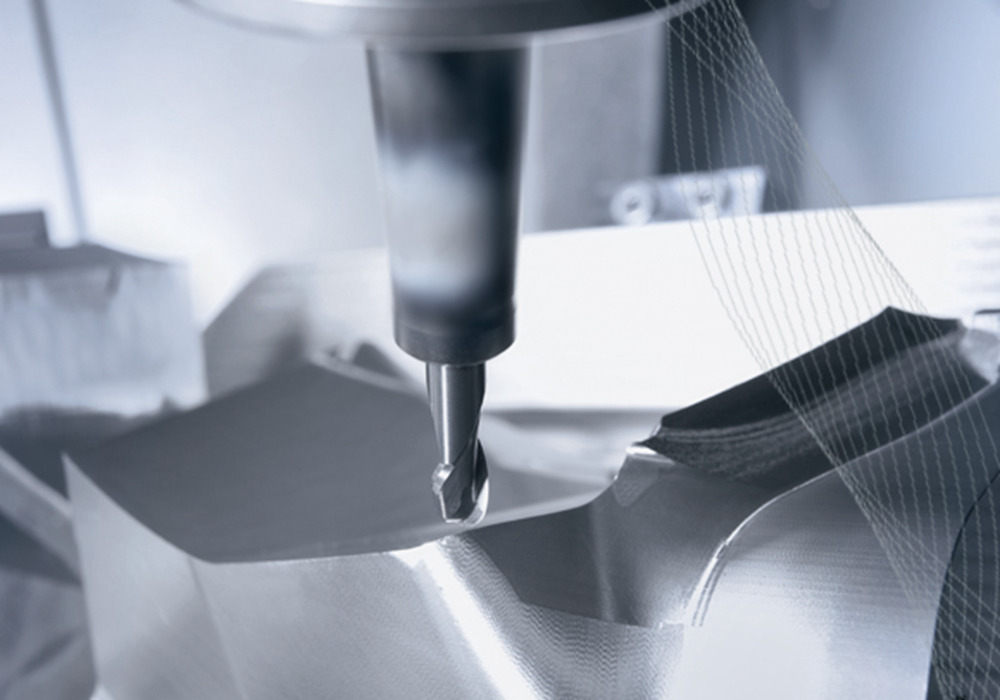
Why Custom CNC?
There are many fabrication methods today (e.g., additive manufacturing, injection molding, die casting, forging, and many more), but what does CNC have to offer that is more advantageous than these methods?
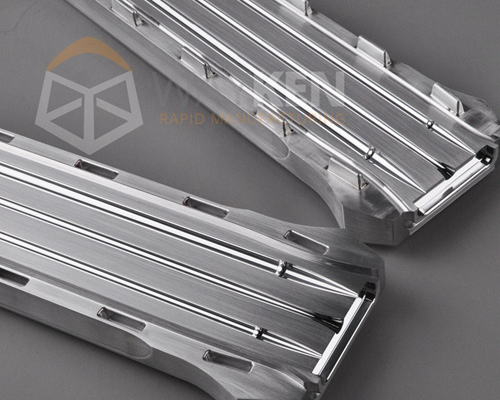 1. High Strength Parts
1. High Strength Parts
There are two ways the strength of parts produced in CNC is maximized. First is the utilization of high strength metals as raw material for a work part, and second is the fact that machining maintains the structural integrity of the raw material.
CNC machining has a remarkable ability to work with even the toughest raw metals like ( Inconel, titanium alloys, tool steel variants) due to the advancements in the cutting edge technology of CNC equipment and tooling. Furthermore, CNC machining does minimal disturbance on the work part’s grain structure during the processing, hence retaining the original material’s excellent mechanical properties.
The strength of CNC machined parts remain superior over some parts fabricated through injection molding and 3D printing. This comes with the fact that the latter parts’ strength is deemed to be unreliable when subjected to machine-induced stress and pressure.
2. High Dimensional Precision and Accuracy
CNC Machining remains unbeatable when producing metal parts with the smoothest surface finish and tightest dimensional tolerance. Also, almost any parts that are fabricated through other methods (injection molding, 3D printing) are still subjected to a secondary machining process to achieve perfect dimensional accuracy.
While tight tolerance can be achieved by the basic CNC processes (milling, turning, drilling), there are also other machining processes that help parts achieve mirror finish and dimensional tolerance of up to +/-.000001 inch. Smooth surfaces can be achieved by various methods like EDM wire cut, grinding, lapping, honing, and many more.
Due to this high precision, CNC machining is the fabrication method used for creating parts used in motion control valves on aircraft, race cars, and other industrial types of machinery. Explore more CNC machining services here.
3. Freedom of Parts Customization
Any custom part may be created through CNC machining as long as the CNC program and the toolings permit. The parts produced in a CNC can be as complex as machining intricate busts and sculptures. 3D printing may also be highly customizable, but it lacks the availability to use any metal that may be required for a particular application. Custom CNC is still preferred to create special parts used in aerospace, firearms, metal implants, and bespoke automotive parts.
4. Wide choice of materials
Custom CNC parts can be machined from any material, as long as their machinability index allows, unlike 3D printing and other methods, where the materials are limited. This enables clients to opt for any reasonable and economical option that is available for their specific application. Clients have the freedom to choose a material with more established mechanical properties.
5. Flexible Production Scalability
CNC parts have the flexibility to produce at any given scale compared to injection molding, where it is most suitable for high volumes, or to 3D printing where it is only reasonable for low volume production. CNC parts can be used for rapid prototyping applications where small volumes of parts are produced and, at the same time, still used for industrial parts with high volume production. A significant advantage of CNC production is that a low volume production can be quickly upgraded to high volume while still maintaining a consistent quality for the parts.
Parts Made through Custom CNC
Almost any equipment used in any industry has at least one CNC machined component installed in them. These may range from the smallest parts in a valve to the largest parts installed on turbines. Below is a discussion of some custom CNC parts used in different industries:
Aircraft Components
The smallest machined component that one can see on an aircraft is installed on the valves used for motion control and sensing, while the largest parts may include engine parts and aircraft framing. These small parts are usually made on CNC swiss lathe machines, processed on electrical discharge machining, and finished on lapping/ honing machines. On the other hand, large components are usually machined and finished on mill-turn machines.
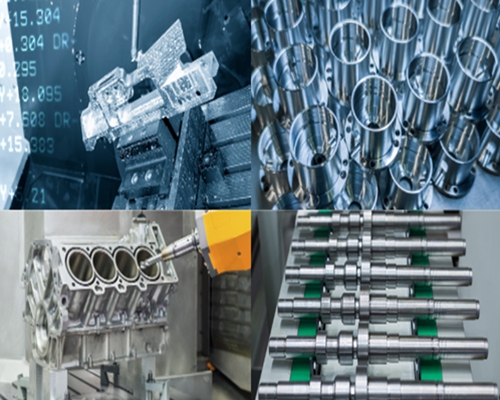 Automotive parts
Automotive parts
There are various automotive parts created through custom CNC, and these include bushings, shafts, timing cams, valve components, engine manifold, pistons, and many more. The bushings and pistons are typically made on lathe machines where cylindrical parts are usually made. Moving on to the shafts, the complicated feature on these parts can be achieved on mill-turn machines. Lastly, the detailed profiles and holes on an engine manifold can be produced on milling machines. These processes may vary depending on the required finishes and special material treatment.
Consumer electronics
CNC parts are also used in consumer electronics; examples of the custom parts are heat sinks and aluminum enclosures. The heat sinks may be produced through either electrical discharge machining or milling. On the other hand, aluminum enclosures are made through a milling process wherein their profile, holes, and slots are created.
Weaponry
The components of a weapon are dominated by metal parts that are created by precision machining. Some examples include bushings, silencer barrels, and thread adaptors. These parts are commonly made on CNC lathe combined with some finishing touches on a milling machine. Overall, these parts are fabricated by combining the processes on a lathe, milling, and EDM wire cut.
Bespoke Metal parts
Custom CNC is a “go-to” fabrication method for producing custom metal parts used on motorcycles, bicycles, fixtures, toolings, and other novelty items. The range of available CNC processes for creating these parts is endless.
Conclusion
AutoProtoWay.com is a specialist in custom CNC machining, with 20 years of experience working with customers from various backgrounds such as the automotive industry, electronical consumer goods, medical devices, aerospace, and so on. If you are looking for CNC machine shops, AutoProtoWay is your best choice.
